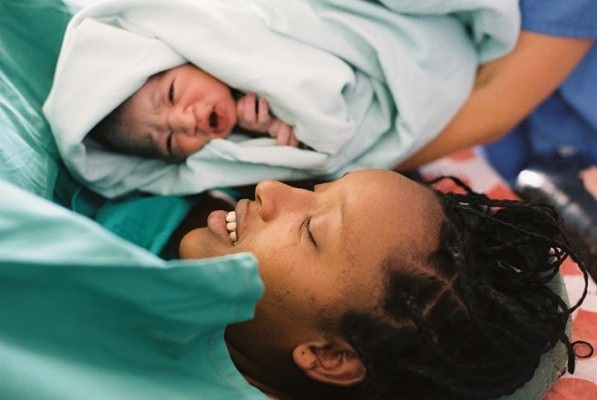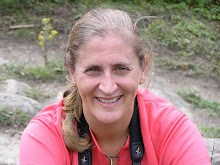January 22nd
My experiences in Gimbi are making me appreciate the advantages of a centrally funded Health service.
What happens here is that anyone can come to the hospital and pay a fee of 9Burr (about 45p) to be seen in general outpatients. This general OPD acts as a sort of "clearing house" come minor problem GP practice with the patients being seen initially by outpatient nurses who are able to prescribe a limited number of drugs (which the patient has to buy from pharmacy). They can also decide to refer on to one of three specialists: a GP who sees all medical problems, a surgeon who sees all surgical and orthopaedic problems or an obstetrician/gynaecologist (currently myself) who sees any thing pregnancy related or gynaecological. If required this specialist consultation is covered in the initial 9burr fee but again any medication or further treatment has to be paid for separately. The other way of accessing medical care is that they can pay 15burr (higher fee as it is open 24-hours I think) and be seen in the emergency room (sorry American terminology again) but any drugs, fluids, treatment or admission to hospital is charged separately. The Adventist Church tries to help out in very extreme or serious cases but overall their charity aims to support the infrastructure required in the hospital ( lie the building and equipment, electricity/water, supply network from Addis for drugs etc., "faringe" organisational & administrative staff and so on) requiring local people only to pay to cover the salaries of the local staff and consumables required for care.
Now 9/15burr may not sound like a lot of money but when you consider that the average daily wage is of the order of 15burr, it follows that most people scrape together the money for the initial consultation but are not able to afford surgery or referral on for other treatment. The other problem is that to come to outpatients or the emergency room may involve a journey of up to 12hours and this also requires Burr to pay for transport.
I saw three women yesterday with the sort of uterine prolapse you only rarely see in the UK (the high rate here is a result of the average birth rate of 6.2/babies per woman in this area) but is definitely operated on virtually immediately when it does occur. All three women are unable to afford an operation-this would normally mean that the only option for them was to continue to live with their prolapse (which is a pretty unpleasant condition but I will leave it to the imagination of the non-medical readers rather than risk upsetting the squeamish). Fortunately there is a ray of hope for these women at the moment, as a vaginal surgical team (not sure who/what exactly yet) are coming from the States for 2-weeks next month and so will be offering cut-price surgery (these sort of sales are very popular here!). Thus, I have added the names of the women I saw to the list that is being kept and if we are able to contact them (all three live more than three hours journey from the hospital and have no mobile phone) hopefully they will get surgery.
A more tragic case was a 50-year old woman who came to consult because of a three-month history of bleeding (she stopped her periods 12years ago-multiple children and nutritional status means that they all seem to have their menopause a lot earlier than the Western average of 51years). The hard lives people lead here means that at 50 years most women look very old (certainly older than their Western age equivalent)but unusually this woman looked extremely fit and well for her age (only 2-years older than me). Unfortunately on examination I found that she has a cervical cancer (no smear test here) that has spread such that an operation in Gimbi would not be ideal as the surgery will be difficult, she is likely to require a larger blood transfusion than we can provide and also would not be curative (in the UK a tumour like this would be treated with radiotherapy and chemotherapy not surgery). The best option should be to travel to the main Black Lion hospital (named I am told after some famous British regiment) in Addis where cancer care is available- although even if you have the necessary fee the waiting times to be treated can be long. Sadly she does not have any money and her daughter wept in the clinic pointing out that her mother "has no sons" to help care for her. She will come back next week when the Ethiopian gynaecologist has returned from holiday and perhaps he will decide to do some sort of palliative surgery in spite of the risks and the inability to cure her as this will be cheaper for the family and thus the only option available.
Thankfully the situation in obstetrics is different and I now fully understand why Gimbi was recommended to me as a good place to come for a first experience of work in Africa. Thankfully the backing of Maternity Worldwide in obstetrics means that I don't have question whether a woman can afford to give birth in hospital or have a caesarean section, I can just get on and do whatever is necessary. Any woman who is pregnant can come to Gimbi to deliver, if they can afford to pay they will be asked to pay the full amount (about 2000burr for a caesarean delivery) but otherwise they have to find a smaller amount (30burr for a normal birth and 400burr for a caesarean section) and Maternity Worldwide via what is called the "Safe Birth Fund" voucher scheme pick up the rest. I am not absolutely clear how they work out who can afford to pay and who can't but the system does seem to work as I am not asked for vouchers for everyone (Ethiopian bureaucracy means I have to fill out and sign lots of forms that require an additional very impressive looking stamp). So for the many of you who generously gave donations to MWW, I see on a daily basis the difference that this makes in allowing poor women access to safer care in childbirth.


No comments:
Post a Comment